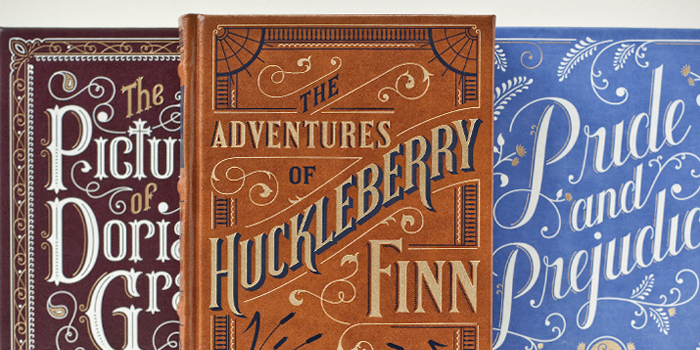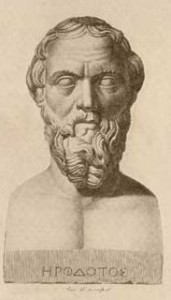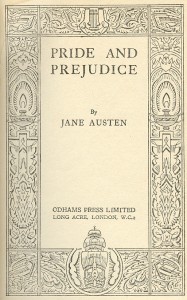
On my first day of freshman year of high school, my English teacher–Mr. Dudas–gave us a pop quiz.
It was a take-home quiz, and it wasn’t a hard one. There was only one question: “What books did you read over the summer?”
Being a bookworm, and eager to make a good first impression with my teacher, I went through my bookshelf and started listing them. I had read so many books that summer! Adult books even, like Michael Crichton novels. I had read so many books over the summer that I had to finish listing them on the back of the page.
I handed in my quiz thinking Mr. Dudas would be impressed, flagging me as quite a reader.
When I got my quiz back, I was shocked at my grade. In big red ink he’d scribbled:
0/21
I got a ZERO on my first English assignment? Me? The kid who had written a novel in middle school got a ZERO? (this is the teenage ego talking here)
My friend Phil had read maybe 8 books that summer, but at least he got a single point, because he had read “The Red Badge of Courage” over the summer break (he was a big civil war fan).
That was what we were evaluated on. Not how many books we’d read, but their quality. How many were classics. (Even vintage Michael Crichton did not qualify.)
I hate to say it, but I think that big fat goose egg so many years ago actually had an effect on me. I have regularly picked up classics since then. Even when they’re hard to read and somewhat dry, I’ve read them. Am I still trying to appease my high school English teacher? I don’t think so. (At least, not anymore.)
Some of the classics are really great. Both those I’ve read in class, and those I’ve read for fun.
When I’ve read them outside of class, I will freely admit that I didn’t necessarily get them. In high school I ended up reading Henry James’ The Turn of the Screw (I think a local theater had done a show of it, and so the title grabbed me). When I read it, I didn’t understand the idea that a narrator could just be plain crazy, and that what was happening in the story was likely only happening in her head. I thought it was just a good (if a little slow) ghost story.
I read Hamlet far too young, and was thoroughly confused. I had to watch Mel Gibson’s movie to get a better understanding of it. Then I read a plot summary of it, then I read it again. Eventually, the language and the storytelling started to seep in.
I’m spending all this time talking about “the classics” because of an article by J.L. Wall praising Barnes & Noble for putting their editions of the classic books out to be purchased and read. He worries that, despite all the free classics on Kindles and Nooks, bookstores still provide the best way for a newcomer to pick up a classic. He writes:
Yet I still worry. Without the physical store, without the displays, the tables, the deals, the promise of no additional critical essays, what will guide a reader (no matter their age) to Herodotus, Thoreau, or Willa Cather outside a class syllabus? There’s great promise in the possibility of out-of-copyright works becoming more accessible to more readers than ever before—but there’s also danger in the thought that there will be nothing to guide a reader toward them by chance encounter, that they might come to smell even more of musty classroom learning than before.
I see where he’s coming from, but I don’t think he has reason to fear.
First off, reading the classics “outside a class syllabus” has always been a challenge. It’s common to think that everyone “way back when” used to read the classics for fun, but the truth of the matter is few had time to read them, few could afford them, and few had the education to understand them.
 And a lot of the classics just don’t work outside of a classroom setting. I picked up Herodotus for fun once (his entire Histories cost me $0.99 on the Kindle). You know what? It’s kind of boring. I got to the part that they talk about in The English Patient in a couple pages and after that my interest wavered. And I’ve read a lot of classics. Almost certainly I would have enjoyed it more in a guided class with discussion and a professor to provide context.
And a lot of the classics just don’t work outside of a classroom setting. I picked up Herodotus for fun once (his entire Histories cost me $0.99 on the Kindle). You know what? It’s kind of boring. I got to the part that they talk about in The English Patient in a couple pages and after that my interest wavered. And I’ve read a lot of classics. Almost certainly I would have enjoyed it more in a guided class with discussion and a professor to provide context.
But even then, I don’t really have to have a classroom setting. Here’s a Podcast from the University of Sydney about the significance of Herodotus and providing that context. There are numerous non-academic sources as well if you want more.
 (Now, many classics very readable without needing a guide. Pride and Prejudice. Walden. Huck Finn. A lot of Dickens, although it would help if he weren’t so dauntingly long. Translated French novels–the translation helps erase issues of archaic English and makes them more readable.)
(Now, many classics very readable without needing a guide. Pride and Prejudice. Walden. Huck Finn. A lot of Dickens, although it would help if he weren’t so dauntingly long. Translated French novels–the translation helps erase issues of archaic English and makes them more readable.)
Of course, the point Wall is making is that the display at Barnes & Noble is one of the last ways readers have of discovering these classics. But again, I think he’s missing how valuable technology and algorithms are to this.
People find the classics the same way they find other books. Right now Les Miserables is #22 on the list of free Kindle books on Amazon. Pride & Prejudice is #79. Click on Literary Fiction, and eight of the top ten free books are classics. In Children’s books, The Secret Garden, Alice in Wonderland, and Tom Sawyer are all free and in the top 10. Based on my own experience with Amazon lists, to have that placement those books are probably downloaded thousands of times a day. I’d say that’s a pretty good readership for The Three Musketeers and The Scarlet Letter.
People who like to read will eventually discover the classics in their own way. Their friends and family will recommend them. Someone who read a book for a class will recommend it to a friend for light reading. The movie version will come out.
I would wager that thanks to the Kindle and ebooks, more people are reading The Scarlet Letter outside of the classroom than ever before.